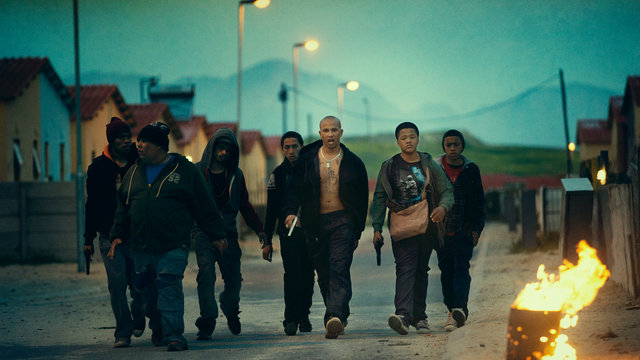The first prosecution of a South African for sharing a media file over the internet has concluded this afternoon in the Commercial Crimes Court in Bellville, Cape Town. The offender, Mr Majedien Norton, pleaded guilty to copyright infringement and received a three-year prison sentence, wholly suspended for five years, in a plea bargain agreement with the state.
The three year sentence was in respect of violating section 27 of the Copyright Act. Norton also received a six month suspended sentence under Counterfeit Goods.
“It’s a huge relief for me and my wife,” Norton told htxt.africa upon leaving the court, “I’m just glad we can put this behind us now and move on.”
Norton uploaded a torrent link and seeded a digitial version of Four Corners, a film about gangster life in the poor communities of the Cape Flats, to popular sharing website The Pirate Bay in November last year. The file, Norton says, was created after ripping a DVD purchased by a friend from a street vendor.
The charges were initially brought by the South African Federation Against Copyright Theft (SAFACT), which claimed that Norton’s file was a first generation creation from a file acquired directly from the film studio. Its director, Corne Guldenpfenning, originally claimed that she was ‘extremely certain of all the rights issues’ around the case and that “You have to be extremely careful before making a first example”.
We’re awaiting SAFACT comment regarding the outcome of the case and whether or not the organisation sees it as a success.
The trial has received a lot of coverage both online and in local papers and magazines. Pictures of Norton – an IT engineer who has recently been retrenched – and his family were widely circulated in the media after being lifted from Facebook.
The director of Four Corners, South African Ian Gabriel, told htxt.africa that he was philosophical about the effects of online copyright infringement and that while it will have cost the production company some viewers, others who would never have heard of the film may now have paid to see it.
“I think the way people think now digitally they don’t see piracy as piracy any more,” Gabriel said, “They see it as sharing. We will definitely not get as many people to the cinemas as we would have if the film were not pirated. At the same time, there are people who have seen the film who would never have got to the cinema. I’m pleased the film is reaching those people because there’s a message of pride and self recognition and of choice for ordinary people that the film is delivering and its important that message be heard.”
The film was released into theatres at the end of last month, and is currently the 51st highest grossing movie of the year according to stats at Box Office Mojo. Other major South African releases – including the latest Leon Schuster flick – are widely available online. With box office returns so low in the country – even Long Walk to Freedom took less than $2.5m in receipts here – international and DVD sales are vital under the current model to keep funding relatively big budget productions.
This story was updated with further details of the sentence handed down to Norton on 23rd April.

